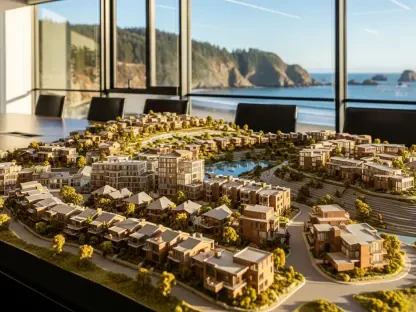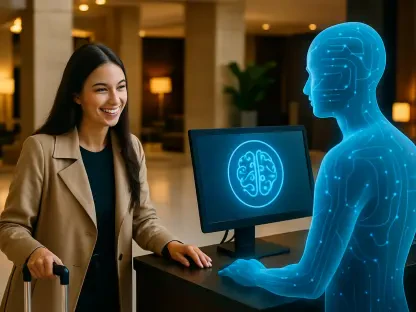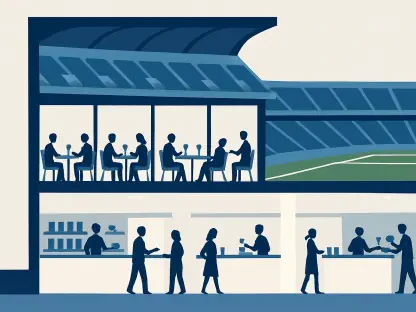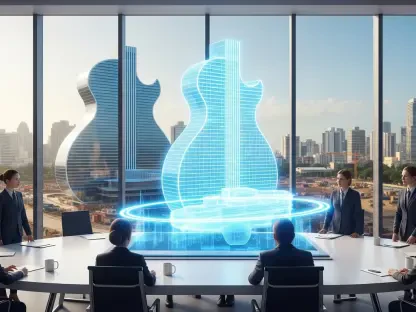What if a hotel could anticipate a guest’s every need before they even step through the door, creating a seamless experience from arrival to departure? Picture this: a weary traveler arrives after a long flight, and with a single tap on their phone, their room unlocks, the thermostat is already set to their preferred temperature, and a familiar playlist hums softly in the background. This seamless integration of technology and personal touch isn’t a far-fetched fantasy but a reality being crafted by the Bright Group, a company reshaping the hospitality landscape. Their approach challenges traditional notions of hotel stays, blending cutting-edge systems with the warmth of human connection to create experiences that feel both futuristic and deeply personal.
The significance of this transformation cannot be overstated in an industry where guest expectations are soaring and operational hurdles are intensifying. Hotels today face the dual challenge of delivering bespoke service while managing tight budgets and staffing shortages. The Bright Group stands out as a beacon of innovation, demonstrating how technology can address these pain points while enhancing the guest journey. Their story offers a glimpse into a broader shift in hospitality, where tech becomes not just a tool but a cornerstone of competitive advantage, setting a new standard for what travelers can expect.
What If a Hotel Knew You Before Arrival?
Imagine walking into a lobby where the staff already knows your name without a single word exchanged. At properties managed by the Bright Group, this scenario unfolds daily, thanks to sophisticated data systems that capture guest preferences from past stays. A business traveler checking into a Vitality hotel in Memphis might find their favorite coffee waiting at the counter, a small but impactful gesture made possible by real-time analytics.
This level of personalization extends beyond mere greetings. Smart locks allow guests to bypass traditional check-in lines, accessing their rooms via mobile apps, while AI-driven platforms adjust room settings like lighting or music based on stored profiles. Such innovations ensure that every interaction feels curated, turning a standard stay into a memorable encounter that resonates long after checkout.
The beauty of this model lies in its scalability across diverse properties. Whether it’s a bustling urban hotel or a quaint boutique, the Bright Group tailors tech solutions to fit specific environments, ensuring that personalization doesn’t come at the expense of operational efficiency. This balance is key to redefining how guests perceive and engage with hospitality spaces.
Why Hospitality Demands a Tech Revolution Today
The hospitality sector stands at a critical juncture, grappling with unprecedented demands from guests who expect seamless service amidst a digital age. Studies reveal that 78% of travelers now prioritize personalized experiences, yet many hotels struggle to meet these expectations due to limited resources. This gap highlights the urgent need for technological intervention to bridge operational challenges with consumer desires.
For smaller operators and boutique hoteliers, the struggle is even more pronounced as they compete with larger chains while managing lean teams. The Bright Group’s journey offers a compelling case study in addressing these issues, showing how tech can automate mundane tasks like billing or scheduling, freeing staff to focus on guest interactions. Their approach underscores a vital truth: in today’s market, embracing technology isn’t optional but essential for survival.
Moreover, the rapid evolution of consumer behavior—driven by mobile-first lifestyles—demands that hotels adapt or risk obsolescence. The Bright Group’s emphasis on tech as a core strategy rather than an afterthought positions them as leaders in this transformation, providing a blueprint for others to follow in an industry racing to keep pace with modern expectations.
Exploring Bright Group’s Tech-Infused Hospitality Framework
At the heart of the Bright Group’s success is a multi-layered strategy that began with providing tech solutions like property-management systems and smart locks to simplify hotel operations. Initially targeting smaller operators, their tools were designed for ease of use, helping first-time owners navigate complex workflows. This foundation in technology laid the groundwork for a broader vision that now spans multiple facets of hospitality.
Their evolution into property management and acquisition, particularly in the Midwest, marks a significant pivot, complemented by ventures into construction and food-and-beverage services. Additionally, the launch of two distinct brands—Vitality for business travelers with tech amenities like mobile check-in, and kodō for experience-seekers with culturally inspired designs—showcases their ability to cater to varied demographics. Vitality properties in cities like Dayton prioritize efficiency, while kodō’s Los Angeles firehouse location integrates local history into its minimalist aesthetic.
Looking ahead, expansion plans for Vitality focus on U.S. urban centers with an added emphasis on wellness and event spaces, while kodō aims for global reach, adapting to cultural nuances in major hubs. This dual-brand approach, underpinned by proprietary tech platforms, illustrates how innovation and identity can coexist, serving diverse traveler needs without sacrificing a unique sense of place or purpose.
Insights from the Field: Real Stories and Impact
CEO Deniz Dorbek Kocak champions a philosophy of “reading the guest,” a principle that guides the Bright Group’s blend of automation and personal engagement. Kocak believes technology should predict preferences—be it a guest’s go-to drink or ambient music—but stresses that human touches, like recalling a name, create lasting impressions. This perspective aligns with industry consensus that tech must amplify, not diminish, the personal element of service.
Feedback from guests at kodō’s Los Angeles property reinforces this balance, with many recounting a sense of belonging fostered by staff interactions atop tech-driven conveniences. One traveler noted feeling like a local rather than a visitor, a testament to how community integration enhances the stay. Such stories highlight the tangible impact of the Bright Group’s model, turning abstract innovation into lived experiences.
Industry experts also weigh in, pointing to a 2023 survey by HospitalityNet showing that 65% of hoteliers see tech-personalization hybrids as the future of guest satisfaction. The Bright Group’s growing portfolio and positive guest narratives position them as a benchmark, proving that technology and hospitality can merge to create meaningful connections that resonate across markets.
Actionable Strategies for Merging Tech with Hospitality
For hoteliers inspired by the Bright Group’s achievements, adopting guest-centric technology offers a starting point. Tools like mobile check-in or smart access systems can streamline entry processes, but training staff to provide personal assistance for those less tech-savvy ensures inclusivity. This hybrid approach mirrors how Vitality properties maintain flexibility in service delivery.
Data analytics also plays a pivotal role in personalization, enabling hotels to surprise guests with tailored offerings—think pre-set room temperatures or preferred snacks—before a request is made. Another lesson is to automate repetitive tasks such as reservations or invoicing, allowing employees to prioritize face-to-face engagement, a tactic that boosts both efficiency and guest rapport.
Finally, adapting to specific audiences and thinking beyond the stay are crucial. Distinct experiences for business versus leisure travelers, akin to Vitality and kodō’s targeted designs, ensure relevance, while integrating community elements like local partnerships transforms a hotel into a destination. These strategies, rooted in the Bright Group’s framework, provide a practical roadmap for blending innovation with the essence of hospitality.
Looking back, the Bright Group’s journey has carved a path that many in the hospitality industry study with keen interest. Their ability to weave technology into the fabric of personalized service has not only elevated guest experiences but also offered a lifeline to operators navigating modern challenges. As the sector continues to evolve, their model stands as a reminder of what is possible when innovation meets human connection. The next step for hoteliers is clear: embrace tech as a partner, invest in understanding guest needs through data, and never lose sight of the small gestures that turn stays into stories worth retelling.









